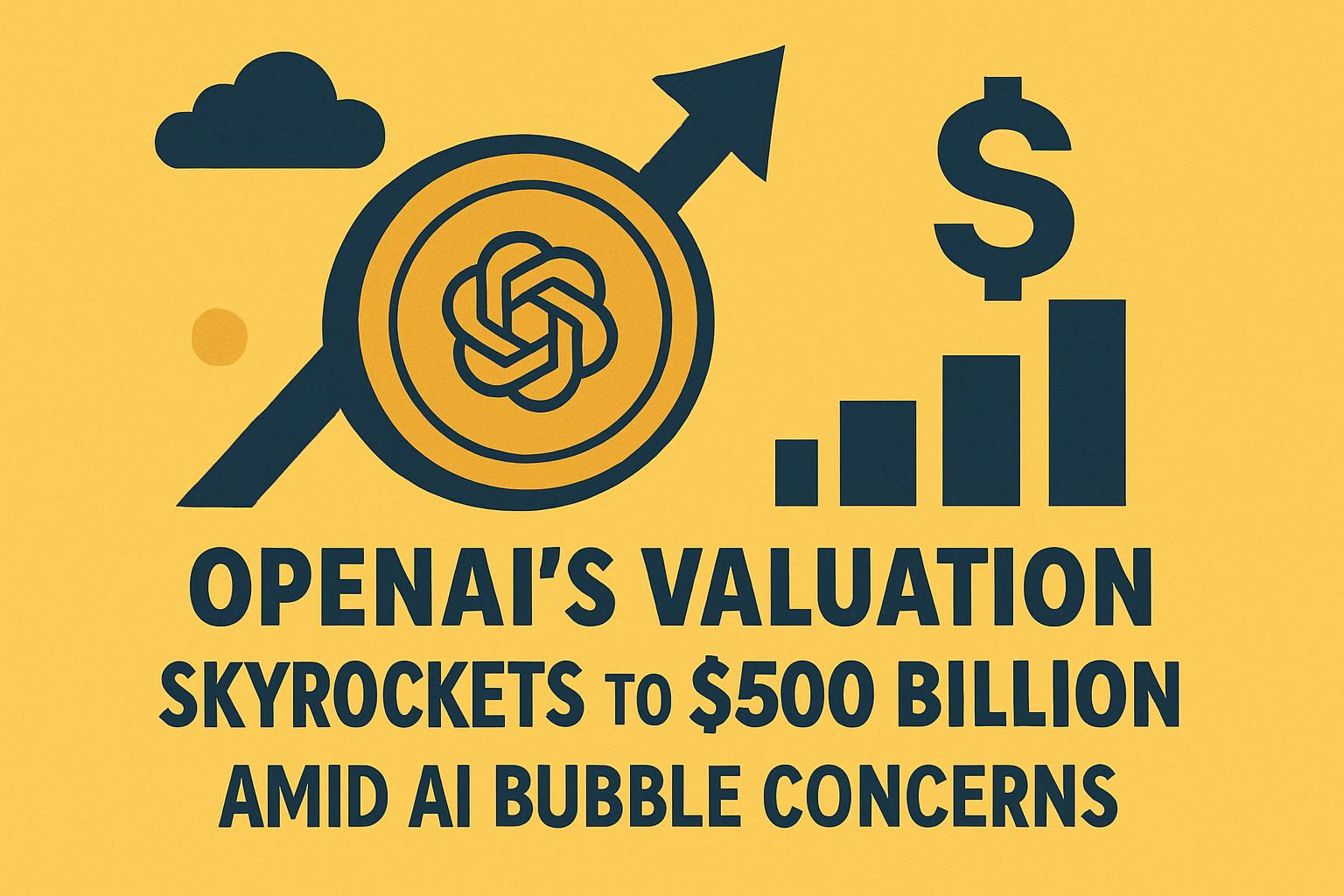OpenAI, the pioneering force behind transformative AI technologies, has hit a staggering $500 billion in valuation, exceeding the valuation of Elon Musk’s SpaceX. This milestone positions it as the most valuable startup globally, but not everyone views this leap as an unalloyed triumph.
OpenAI’s Meteoric Rise: A New Benchmark in Valuation
With an impressive $66 billion stock sale involving investors like Thrive Capital and SoftBank, OpenAI’s valuation soared past SpaceX’s $400 billion mark, revealing the immense appetite for AI infrastructure investments worldwide. This enthusiasm reflects the high hopes placed on AI’s potential to redefine industries and economies.
From Philanthropy to Profit: OpenAI’s Strategic Shift
Founded as a non-profit in 2015, OpenAI’s journey has evolved dramatically. Currently, OpenAI is negotiating with Microsoft to transform into a public benefit corporation (PBC), sparking controversy. Elon Musk, a key figure in AI advocacy, disapproves of this shift, arguing it deviates from OpenAI’s original mission to serve humanity without a profit motive.
A Battle for Talent: The AI Industry War
Beyond financial metrics, OpenAI faces fierce competition from tech giants like Meta in attracting top-tier talent. Offering robust financial incentives, these companies are willing to bid aggressively to lure away experts. In response, OpenAI is allowing secondary stock transactions, providing employees with tangible benefits as the company’s value soars.
AI Bubble Concerns: James Anderson’s Cautious Perspective
While the tech world celebrates AI’s advances, renowned investor James Anderson voices warnings reminiscent of the dot-com bubble. He points to the explosive valuation growth of entities like OpenAI and Anthropic, cautioning about unsustainable cyclic dependencies. Nvidia’s $100 billion planned investment in OpenAI encapsulates these concerns, highlighting a precarious vendor financing-like scenario, where Nvidia is both a major investor and customer.
Global Investment Excitement vs. Broader Economic Risks
The euphoria surrounding OpenAI’s success is a testament to AI’s soaring prominence. Yet, Anderson warns of macroeconomic risks if the U.S. continues disengaging from China under protectionist policies, potentially leading to technological gaps. His evocative analogy of America in a decade paints a stark picture: an advanced tech sector juxtaposed with a lagging automotive and energy system.
OpenAI’s $500 billion valuation is not just a number; it’s a symbol of global technological ambitions, tempered by lessons of financial history. As AI progresses, stakeholders must navigate these waters with both optimism and caution.

![[News] Bitcoin at a Turning Point? 10x Research Signals a Bullish Macro Shift Ahead](https://cryptoexplores.com/wp-content/uploads/2025/06/new20250616.jpg)
![[News] Binance Lists $HOME, the Gas-Free, Bridge-Free All-in-One DeFi App](https://cryptoexplores.com/wp-content/uploads/2025/06/news20250617.jpg)